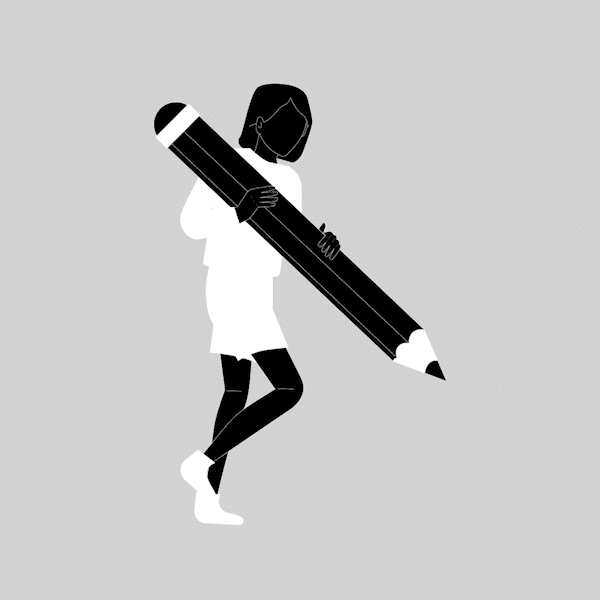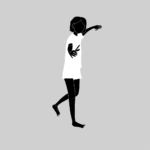THE FUTURE WE WANT
Stereotypes about different ethnicities in Kosovo persist to this day. Albanians have some stereotypes about Serbs. Serbs have some stereotypes about Albanians. Likewise, Roma, Ashkali, Egyptians, Turks, Gorani, Bosniaks have stereotypes about different ethnicities. We have some stereotypes about people without meeting or knowing them. Stereotypes stemming from what we have been told or heard from others. Although we live in a multiethnic society, most youngsters do not have the chance to get to know each other, like the case between Albanians and Serbians.

Illustration: Argjira Kukaj
The first step to change something, is the step of changing yourself, and so I did. I participated in a winter school to open up myself and get to know others, so that together with others we can move forward to the Future We Wanted.
“The Future We Want 3” is a project of ForumZDF- Kosovo in partnership with Roma in Action, Qendra Rinore Publike Skenderaj (Youth Public Center Skenderaj) and Local Initiative LINK. The purpose of this project is to bring together youth of different communities from Gjakova, Skenderaj and Mitrovica together, and so we can learn about each other, and have the opportunity to meet a Serbian, an Albanian or Roma. This process helped us break the ice and stereotypes we have about each – other and so we can contribute together for harmony between ethnicities in Kosovo.
This encounter helped me to get closer with people from all the ethnicities which participated. We all opened the discussion about fears and stereotypes we had for each other, and how it helped us to see the reality. For instance, before attending this event I thought youngsters from Skenderaj do not know who Roma or Egyptian communities are and I was skeptical of their reactions. But when we met it was different, they treated me in a respectful way. Same was for Serbians participants, I thought we could not be talking much but I gained a lot of knowledge, reformulated my opinions, and made new friends with whom I can advocate for peace.
The importance of the participation in this winter school was the fact, we talked about the concept of the conflict and peace from different points of view, and what is causing the conflict, what are the prejudices with which we are growing up about each-other. Then after discussing all of these, we saw that we want to have a better relationship but we are also pointing fingers. So with a simple question: “what does peace mean to you?” We slowed down and thought about what peace means personally for each of us. And for me peace means being good, in harmony and clear in my mind, so when I’m at peace with myself I will also reflect peacefully with my neighborhood.
Such engagements help us grow up and learn a lot, understand the meaning of peace and allow us to open up and come closer. We became more empathic to each-other and by that we broke the barricades between us. We even planned actions and implemented projects together. Some developed a social media campaign about cyberbullying, to raise the awareness about bullying which also happens on the internet and social media. Some taught kids about bullying and stereotypes through sports and education. And some brought together officers from local government, media and human rights activists to discuss human rights.
And that is why it is wonderful to participate in such winter schools or similar activities. We get to develop our critical thinking, educate ourselves, break barriers between different ethnicities and develop friendship with people of different backgrounds. A friend of mine once wrote:” Kosovo is a small country but with bigger dreams”, and that is so true. Together with our dreams, all communities can make Kosovo a bigger country.
About the author: Visar Kukaqi from Gjakova, has studied Albanian Language and Literature in Gjakova.
This activity is supported by the Ministry of Culture, Youth and Sports and Austrian Development Agency

